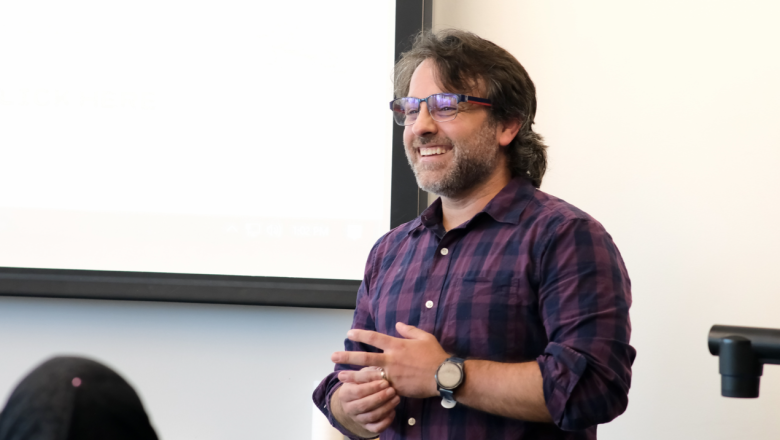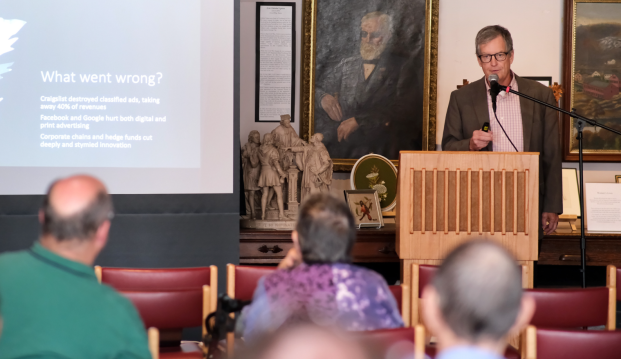
Fitchburg State University launched the first cohort of its Summer Institute for Journalism Education this month, offering area K-12 educators the opportunity to explore "Teaching Tomorrow’s Citizens Today: News Literacy as a Tool for Critical Education."
The program, which included a keynote address from professor and author Dan Kennedy, was attended by educators from Massachusetts and New Hampshire as well as community members.
Participants toured the FATV studios on Main Street and also heard presentations from faculty members and guest experts including Worcester Telegram & Gazette web editor Mike Elfland (a 1986 Fitchburg State alumnus), Harvard Press Editor John Osborn, Sentinel & Enterprise Editor Brendan Lewis, and Dr. Zahed Arman of Framingham State University.
Fitchburg State faculty members J.J. Sylvia IV and Kyle Moody of the Communications Media Department, DeMisty Bellinger-Delfeld, Wafa Unus and Collin Syfert of the English Studies Department, and Renee Fratantonio of the Amelia V. Gallucci-Cirio Library also gave talks during the program, covering topics like information literacy, newsgathering habits, and the rise of conspiracy theories. Participants engaged in lively question and answer sessions about the media subjects raised, and lessons they can bring to their own classrooms as they prepare the next generation of news gatherers and consumers.
In his keynote address offered at the Fitchburg Historical Society on Main Street, Kennedy, a professor of journalism at Northeastern University, discussed the “local news crisis” facing communities across the country as news deserts–defined as counties with zero or one newspaper--expand. Massachusetts has also been affected, he said.
“There are 351 cities and towns that need accountability journalism,” Kennedy said. But the internet, and its domination of advertising revenue that used to belong to daily and weekly newspapers, has upended the business model.
Another culprit has been the buyout of local media outlets by corporate chains and hedge funds, he said. “What revenues are earned are being shipped out of town to pay down debt.”
Kennedy described alternative models to support local news that are showing success in other parts of the country. “The solution is independent local news, supported by the community,” he said.
